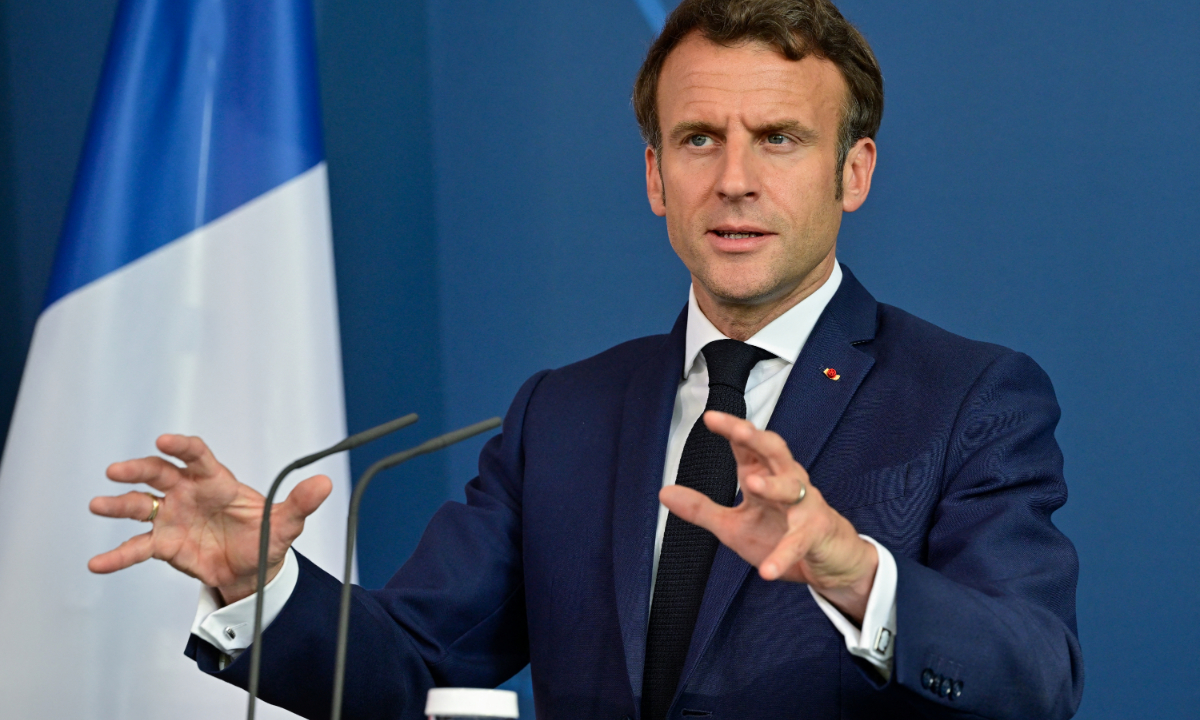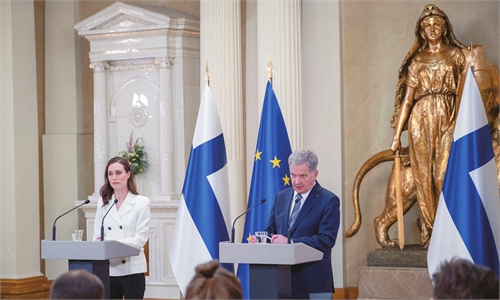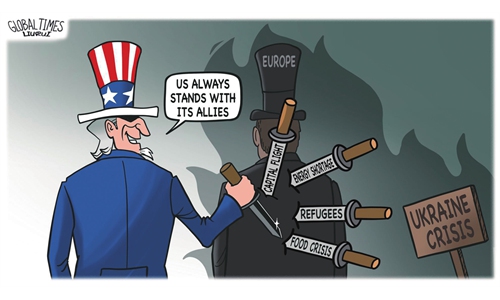
French President Emmanuel Macron
French President Emmanuel Macron delivered a speech at the closing ceremony of the Conference on the Future of Europe on May 9, calling for building of a "European political community" which allows European nations "that subscribe to our shared core values" to cooperate in security, energy, transport, infrastructures and the free movement of people.
Considering Macron's recent re-election and the concepts he once voiced including European sovereignty, end of Western hegemony and the brain death of NATO, he should have multiple considerations behind proposing the establishment of a political community, which includes Ukraine.
First, this is an inevitable choice to realize the revival of French. Macron regards reviving France's status as his mission and closely ties his personal reputation to the future of the country. But he also knows that France's national strength is limited, and it is necessary to rely on Europe to magnify France's status. Therefore, Europeanism has always been one of the cores of Macron's thought. Macron has become Europe's de facto leader and spokesperson, after former German chancellor Angela Merkel left politics, and he certainly will not stop the pace of leading European construction.
Second, this is a possible solution to Europe's current predicament. Europe is now struggling with both internal and external problems. The aftermath of Brexit is still unresolved, as the UK and the EU are arguing over the Northern Ireland Protocol. At the same time, Poland and Hungary are constantly at odds with EU institutions due to internal and judicial affairs. There are conflicts inside Europe. How to hold back EU member states that are at odds and quasi-member states outside the EU has become a problem that Macron, the "last president of Europe," needs to face urgently.
Macron's proposal is also an attempt to rebuild Europe's strategic autonomy. At present, the competition between major powers is fierce, and Europe has become increasingly powerless, hoping to maintain some independence. But in fact, although Europe has a stake in the crises that occur in its periphery, it is always powerless when facing them. As the conflict between Russia and Ukraine intensifies, Europe has been forced to strengthen its dependence on NATO, and the US. But this has also in turn stimulated European people's sense of autonomy. After all, leaving their own security to others is too dangerous. Whether it is to reintegrate European powers, or eliminate risks and avoid dependence on others, Macron will take the opportunity to continue promoting Europe's strategic autonomy.
But with benefits comes risks and costs. There are still many challenges ahead for Macron's European political community to become a reality.
The first challenge is the support of EU member states, and the attitude of Germany is particularly important. German Chancellor Olaf Scholz said Macron's idea is "a very interesting proposal to deal with the big challenge that we are facing," but also said it should not be used to fob off countries that have already been working for many years toward EU membership. How much of a role Germany will play in the future still remains to be seen. In response to Macron's proposed revision of EU treaties, 13 EU member countries including Croatia, Czech Republic, Estonia, Finland, Poland and Romania have jointly come out against "unconsidered and premature attempts to launch a process towards the EU Treaty change."
The second challenge is other European partner's response. An important original intention of building the new political community is to solve the issue of Ukraine joining the EU. According to actual conditions, it may take decades as Macron said. But in fact, Ukraine does not seem to be impressed by Macron's half-finished proposal. Ukrainian President Volodymyr Zelensky said, "Ukraine cannot be held at a distance, that is, being admitted and not being admitted at the same time." Besides, an important target, the UK, does not take it seriously at all. It seems British Prime Minister Boris Johnson is still immersed in honeymoon with the US and mutual confrontation with the EU.
Third, the US will definitely hold France back. The US has always regarded Europe as within its own sphere of influence. Washington supports a certain degree of European integration and strength, but Europe can only serve US' interests and must not go beyond US' control. Whether it was the instigation of Brexit or inciting the conflict between Russia and Ukraine, the US has fulfilled its purpose of dividing and weakening Europe. At present, the US is taking advantage of some European countries' security concerns to further strengthen its control over Europe and curb the trend of Europe's independent development. Therefore, the US will cause problems both overtly and covertly.
Macron's proposal has provided a possible solution to Europe's dilemma. To not rely on or succumb to the US, Europe needs to make a difference.
The author is a professor at the School of International Relations of Beijing Foreign Studies University. opinion@globaltimes.com.cn


